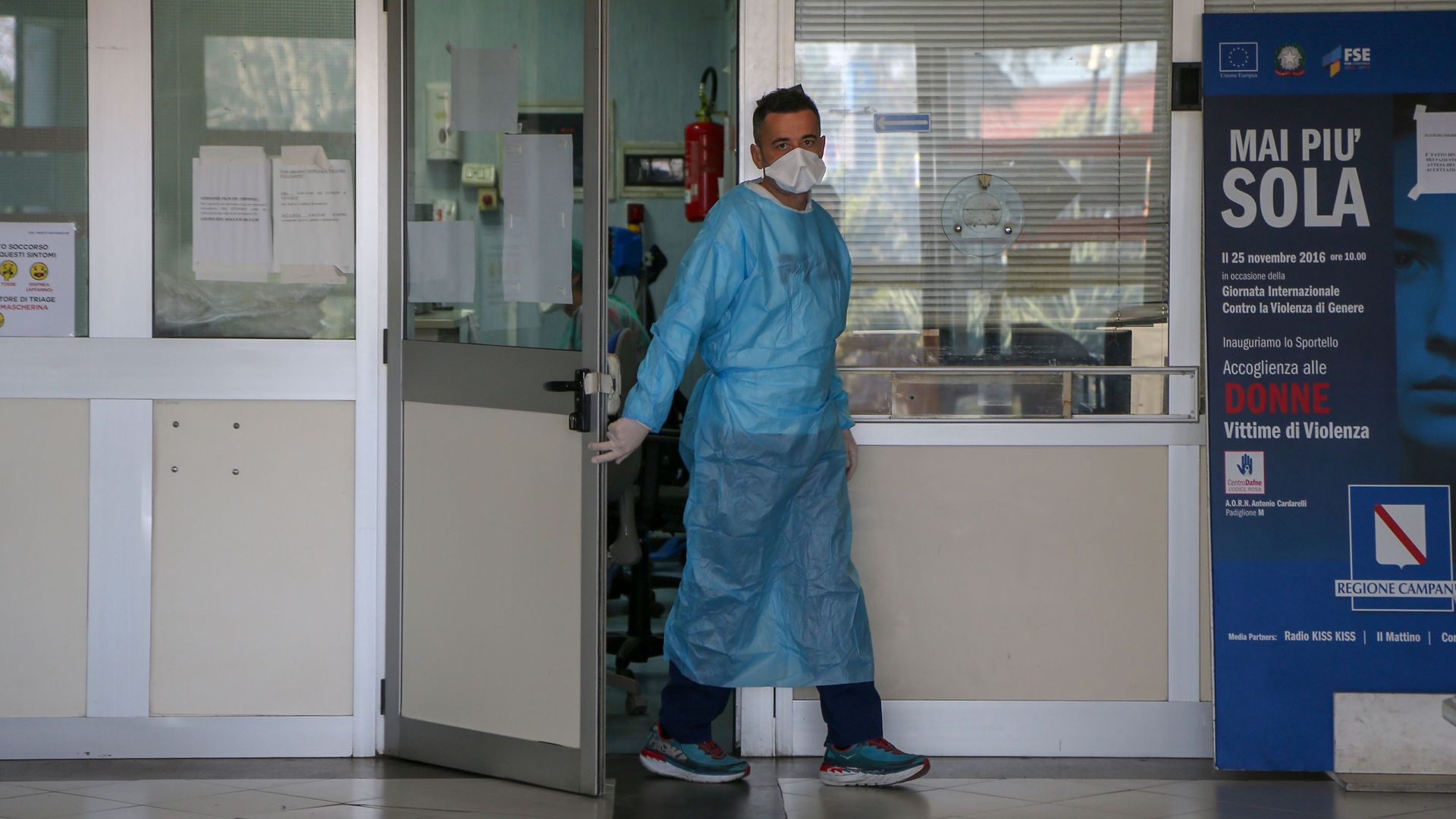
Italy has reported more than 12,000 coronavirus cases. Photo: Carlo Hermann/AFP via Getty Images
The coronavirus outbreak in Italy has gotten so bad so quickly that some doctors are now forced to practice "catastrophe medicine" — determining which severely ill patients should, and should not, get care based on the resources available.
Between the lines: The U.S. is not at that point — but a week ago, neither was Italy. The rapid deterioration there underlines the importance of taking preventive measures seriously, and the need for political and health leaders to start thinking about hard ethical questions.
Where it stands: The rapid spread has forced Italian leaders to quarantine the entire country and close all shops except for pharmacies and grocery stores. The Italian health care system, which many experts hold in high regard, is overworked.
- The severity of the virus in Italy contributed to the Trump administration's travel ban, but it was not the sole catalyst, administration officials told my colleague Alayna Treene.
What's next: There are several theories as to why cases exploded so dramatically in Italy, but the answers aren't clear right now. In the meantime, experts say the biggest lesson for Americans is that trying to limit the virus' spread — mainly by limiting contact with potentially infected people — really is important.
- "When you have a real hot spot like [Italy], nobody has the time to do anything but cope with what's in front of them," said Arnold Monto, an infectious disease doctor and epidemiologist at the University of Michigan. "The only thing we can do, and the only rational thing to do, is social distancing."
Yes, but: The U.S. has no national plan for how to ration care if intensive care units and ventilators are all in use. State leaders and hospitals would need to write down actual policies now to avoid making those decisions on the fly, like Italian officials have had to.
- "You cannot have that conversation in the midst of the crisis," said Alan Regenberg, a bioethicist at Johns Hopkins. "That is absolutely not the right time."
The bottom line: Shutting down schools, closing cultural spots, suspending sports and staying at home will upend people's lives in the short term, and hypothesizing who should get lifesaving care is an ethical nightmare.
- But these decisions are likely the best shot the U.S. has to prevent out own outbreak from turning into Italy's dire situation.
